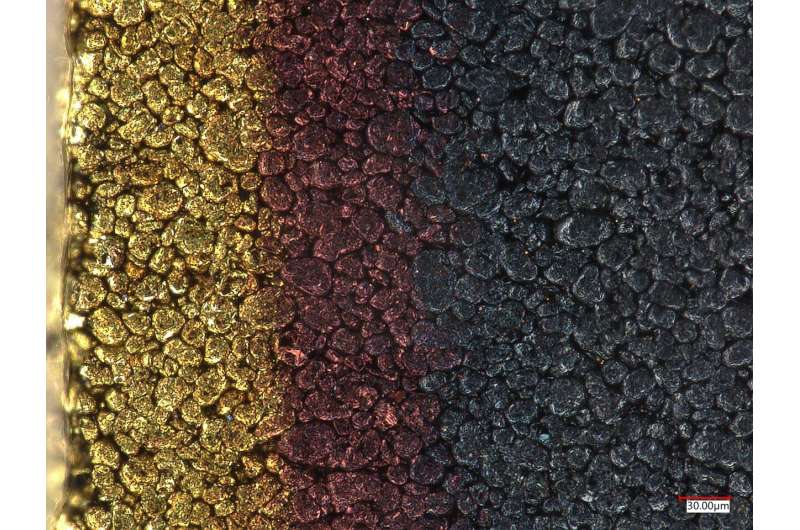
A new study led by Dr. Xuekun Lu from Queen Mary University of London in collaboration with an international team of researchers from the UK and U.S. has found a way to prevent lithium plating in electric vehicle batteries, which could lead to faster charging times. The paper was published in the journal Nature Communications.
Lithium plating is a phenomenon that can occur in lithium-ion batteries during fast charging. It occurs when lithium ions build up on the surface of the battery’s negative electrode instead of intercalating into it, forming a layer of metallic lithium that continues growing. This can damage the battery, shorten its lifespan, and cause short-circuits that can lead to fire and explosion.
Dr. Xuekun Lu explains that lithium plating can be significantly mitigated by optimizing the microstructure of the graphite negative electrode. The graphite negative electrode is made up of randomly distributed tiny particles, and fine-tuning the particle and electrode morphology for a homogeneous reaction activity and reduced local lithium saturation is the key to suppress lithium plating and improve the battery’s performance.
“Our research has revealed that the lithiation mechanisms of graphite particles vary under distinct conditions, depending on their surface morphology, size, shape and orientation. It largely affects the lithium distribution and the propensity of lithium plating,” said Dr. Lu. “Assisted by a pioneering 3D battery model, we can capture when and where lithium plating initiates and how fast it grows. This is a significant breakthrough that could have a major impact on the future of electric vehicles.”
The study provides new insights into developing advanced fast charging protocols by improving the understanding of the physical processes of lithium redistribution within graphite particles during fast charging. This knowledge could lead to an efficient charging process while minimizing the risk of lithium plating.
In addition to faster charging times, the study also found that refining the microstructure of the graphite electrode can improve the battery’s energy density. This means that electric cars could travel further on a single charge.
These findings are a major breakthrough in the development of electric vehicle batteries. They could lead to faster-charging, longer-lasting, and safer electric cars, which would make them a more attractive option for consumers.
More information:
Nature Communications (2023), DOI: 10.1038/s41467-023-40574-6. www.nature.com/articles/s41467-023-40574-6
Citation:
New study finds ways to suppress lithium plating in automotive batteries for faster charging electric vehicles (2023, August 24)
retrieved 24 August 2023
from https://techxplore.com/news/2023-08-ways-suppress-lithium-plating-automotive.html
This document is subject to copyright. Apart from any fair dealing for the purpose of private study or research, no
part may be reproduced without the written permission. The content is provided for information purposes only.
Stay connected with us on social media platform for instant update click here to join our Twitter, & Facebook
We are now on Telegram. Click here to join our channel (@TechiUpdate) and stay updated with the latest Technology headlines.
For all the latest Technology News Click Here
For the latest news and updates, follow us on Google News.
